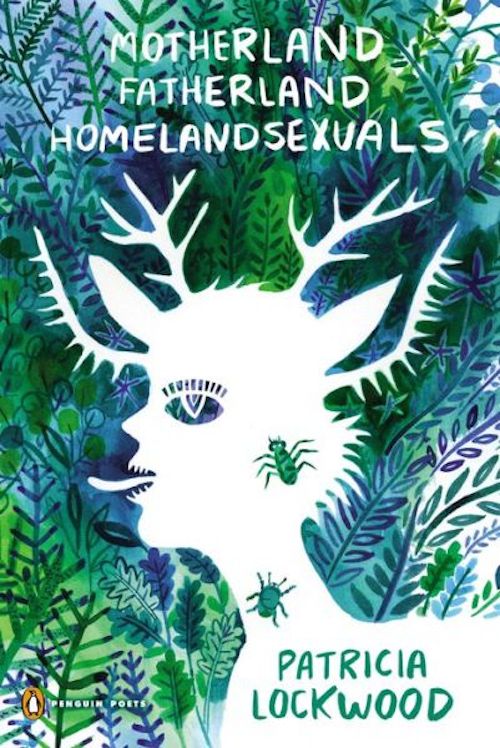Your Handy Guide to Women Reviewing Men Reviewing Patricia Lockwood

On May 28, The New York Times Magazine profiled Patricia Lockwood (as we mentioned).
On May 29, The New Yorker had The New Republic's Adam Plunkett write about Patricia Lockwood's infamous, famous, "crowd-pleasing" poem, "Rape Joke" and her new book, Motherland Fatherland Homelandsexuals.
On June 2, The Awl's Matt Buchanan responded to Plunkett's review with a piece called "Men Unsettled by Woman's Poems." Buchanan's piece also references a review from Jonathan Farmer, in Slate, where he writes:
Here’s the thing: For the most part, I don’t like reading Patricia Lockwood’s poems. They make me feel slow-witted and over-serious, clumsy, credulous, and uncool. They make me feel like the guy who ruins all the fun. Her poems aren’t wrong; I am that guy. But I don’t like being reminded.
Also on June 2, a piece surfaced at The Toast about Plunkett's review, called "Don’t Worry So Much: How Not To Review Women’s Writing," penned by Mallory Ortberg.
Lockwood's poems are sexually explicit, ridiculous, and unconcerned with the desires of men, and thus two men seem to be made uncomfortable, one shamed by his own discomfort, the other, not so much. (Worth noting: it seems that almost every review of the book—whose most famous piece is a poem about rape—so far in a major outlet has been written by a man?) The conclusions to be drawn seem dourly straightforward. This is strange. Why do these particular poems, by this particular person, in this particular book, at this particular time, bother these particular men?
Yesterday, New York Mag's style blog The Cut helped us to better understand the entire "dust-up," in an article by Kat Stoeffel called: "The ‘Rape Joke’ Poet Patricia Lockwood’s New Book Is Great." Going by the permalink, the piece was probably originally "At Last a Woman Reviews Patricia Lockwood," coulda shoulda. Stoeffel writes:
After a big, glowing profile of Lockwood in The New York Times Magazine, The Toast wrote that her book had been given a sexist review by The New Yorker online. The Awl further observed that only men had been assigned to review it.
In Adam Plunkett’s New Yorker review, he condescendingly “worries” that Lockwood has succumbed to the “temptation” of “constant reinforcement” Twitter offers, and this need to be well liked and heavily "liked" has shaped her poetry for the worse.
I also don’t mean that Twitter is stupid but, rather, that it rewards careful phrasing, careful impersonating, brisk readings of cultural attitudes — in short, rhetoric. Her crowd claps loudly at jokes, especially provocative ones, and the lowest common denominator feels provoked to respond, begetting further jokes at their expense.
Calling Lockwood a Twitter poet has the same effect as calling a woman who writes novels about other women a chick-lit author. It gives men — in particular the serious ones still largely in control of prizes and grants and review sections — permission to ignore her work. It’s not an explicitly gendered label, but the negative connotations of the Twitter poet overlap with those of the chick-lit author, the women’s magazine editor, and the pop starlet. If she is successful, it is because her product cannily catered to the preexisting demands of the crowd, not her own intellectual or artistic vision. I think women are especially sensitive to this critique, because it mirrors one often made of us sexually: If we are popular and make ourselves accessible to many, we must be whores.
[...]
Having read Motherland, and being a woman, this my review: It is a fantastically weird little book that makes funny and creepy almost-fables out of sex and gender and the business of writing. That it is all this to someone who follows neither Lockwood’s poetry scene nor her comedic Twitter personality is a virtue. But I can also say that Plunkett’s attempt to link Lockwood’s Twitter persona to her poems (“the zany comic sexuality ... is never more nuanced than the brutish, broish caricature she tweets about and that tweets back at her her poems”) is weak. It misrepresents what the majority of the poems in the book are about (alas, not men!), and misunderstands the ones that are.
Got it? No? Read it all at The Cut.


